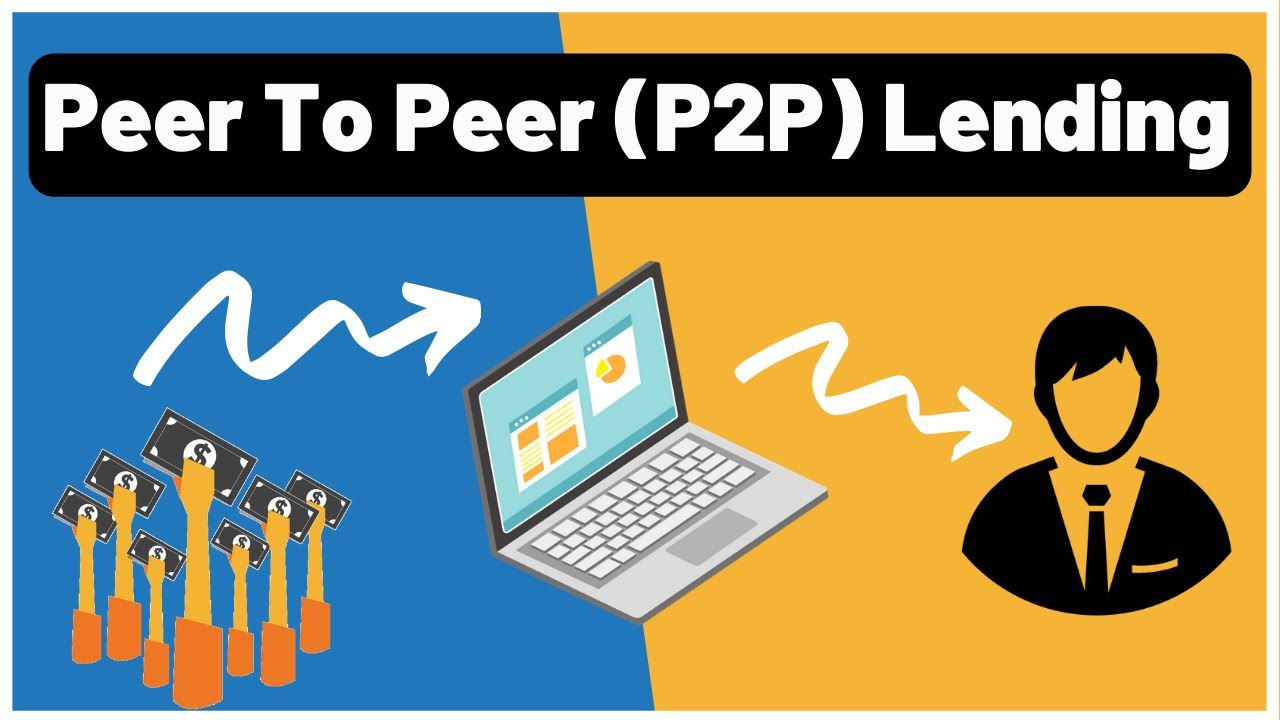Understanding The Use Of Cryptocurrency In Crowdfunding And Peer-To-Peer Lending
Understanding the use of cryptocurrency in crowdfunding and peer-to-peer lending has been gaining popularity in recent years as an alternative to traditional financial systems. One area where cryptocurrency has been making a significant impact is in the realm of crowdfunding and peer-to-peer lending.
Author:Gordon DickersonReviewer:James PierceFeb 25, 20238.7K Shares224.5K Views

Understanding the use of cryptocurrency in crowdfunding and peer-to-peer lendinghas been gaining popularity in recent years as an alternative to traditional financial systems.
One area where cryptocurrency has been making a significant impact is in the realm of crowdfunding and peer-to-peer lending.
In this article, we will explore how cryptocurrency is being used in these fields and the benefits and risks associated with this new form of financing.
Understanding Crowdfunding
Crowdfunding is a method of raising capital for a project or venture by soliciting small contributions from a large number of people, typically via the internet.
Crowdfunding can take many forms, including donation-based, reward-based, and equity-based crowdfunding.
Donation-based crowdfunding involves soliciting funds from individuals without offering any form of compensation in return.
Reward-based crowdfunding offers contributors a reward in exchange for their financial support, such as early access to a product or service. Equity-based crowdfunding involves selling shares in a company to investors.
Understanding Peer-to-Peer Lending
Peer-to-peer lending is a form of lending where individuals lend money to other individuals, bypassing traditional financial institutions such as banks.
Peer-to-peer lending platforms connect borrowers and lenders, typically using an online platform. The platforms charge fees for their services and lenders can earn interest on their loans.
Understanding The Use Of Cryptocurrency In Crowdfunding And Peer-to-peer Lending
Cryptocurrency is being used in crowdfunding and peer-to-peer lending in various ways.
One of the most significant benefits of using cryptocurrency in these fields is that it allows for cross-border transactions without the need for traditional financial intermediaries. This makes it easier for individuals to invest in projects or lend money to borrowers in other countries.
Cryptocurrency is also being used in reward-based crowdfunding. Some crowdfunding platforms, such as Kickstarter and Indiegogo, now accept Bitcoin as a form of payment.
This allows backers to contribute to projects using Bitcoin, providing an additional payment option for those who hold cryptocurrency.
In peer-to-peer lending, cryptocurrency is being used to provide borrowers with access to loans that they might not otherwise have been able to obtain.
For example, borrowers who do not have a traditional credit history may be able to obtain a loan using cryptocurrency as collateral. This type of lending is called crypto-backed lending.
Benefits And Risks Of Using Cryptocurrency In Crowdfunding And Peer-to-Peer Lending
The use of cryptocurrency in crowdfunding and peer-to-peer lending has several benefits, including faster transaction times, lower fees, and increased accessibility.
Cryptocurrency allows for transactions to be completed almost instantly, compared to traditional banking systems, which can take several days to process transactions.
This faster transaction time can be particularly beneficial for projects or ventures that require immediate funding.
Lower fees are another significant benefit of using cryptocurrency in crowdfunding and peer-to-peer lending. Traditional financial intermediaries, such as banks and credit card companies, often charge high fees for their services.
Cryptocurrency transactions, on the other hand, typically have lower fees, making it a more cost-effective option for individuals seeking to raise capital or lend money.
However, there are also risks associated with using cryptocurrency in crowdfunding and peer-to-peer lending. One significant risk is the volatility of cryptocurrency prices.
Cryptocurrency prices can fluctuate rapidly, leading to significant losses for investors.
This risk can be particularly significant for those who hold large amounts of cryptocurrency or those who invest in projects or ventures that are heavily dependent on cryptocurrency.
Another risk is the potential for fraud or scams. Cryptocurrency transactions are irreversible, meaning that once a transaction is completed, it cannot be reversed.
This makes it easier for scammers to take advantage of unsuspecting investors. Additionally, since cryptocurrency is not regulated by any government or financial institution, there is no recourse for investors who fall victim to fraud.
Regulatory uncertainty is also a concern for those using cryptocurrency in crowdfunding and peer-to-peer lending.
Governments around the world are still figuring out how to regulate cryptocurrency, which has led to a lack of clarity on how it can be used in these fields.
This regulatory uncertainty can make it difficult for individuals to understand the legal implications of using cryptocurrency in crowdfunding and peer-to-peer lending.
The Rise Of Cryptocurrency In Crowdfunding And Peer-to-Peer Lending
In recent years, cryptocurrency has become increasingly popular in the world of crowdfunding and peer-to-peer lending.
Cryptocurrency is a decentralized digital currency that uses cryptography to secure and verify transactions and control the creation of new units. It operates independently of any central authority, making it a truly decentralized form of currency.
This decentralization is one of the primary reasons why cryptocurrency has gained popularity in crowdfunding and peer-to-peer lending.
One of the key benefits of using cryptocurrency in crowdfunding and peer-to-peer lending is the speed of transactions. Traditional methods of funding can take several days or even weeks to process, whereas cryptocurrency transactions can be completed within minutes.
This speed is due to the lack of intermediaries involved in cryptocurrency transactions, meaning that there is no need for banks or other financial institutions to process the transaction.
Another advantage of using cryptocurrency in crowdfunding and peer-to-peer lending is the lower transaction fees. Traditional funding methods can come with high transaction fees, particularly for international transactions.
Cryptocurrency, on the other hand, often has much lower fees, making it an attractive option for those who want to save money on transaction costs.

Peer To Peer Lending Explained in 60 Seconds | Crowdfunding | Ecoholics
Advantages Of Using Cryptocurrency In Crowdfunding And Peer-to-Peer Lending
In addition to the benefits of speed and lower fees, there are other advantages to using cryptocurrency in crowdfunding and peer-to-peer lending.
One of these is the increased accessibility of funding. Cryptocurrency allows people from all over the world to participate in crowdfunding and peer-to-peer lending, regardless of their location or financial status.
This can be particularly beneficial for marginalized groups who may have limited access to traditional funding methods.
Another advantage of using cryptocurrency in crowdfunding and peer-to-peer lending is the potential for increased transparency.
Cryptocurrency transactions are recorded on a public ledger called a blockchain, which means that they can be traced and verified.
This transparency can help to reduce the potential for fraud and can provide investors with greater confidence in the projects or ventures they are investing in.
People Also Ask
Why Is The Speed Of Transactions Important In Crowdfunding And Peer-to-peer Lending?
Speed of transactions is important in crowdfunding and peer-to-peer lending because it can help to ensure that projects or ventures are funded quickly and that lenders receive their money promptly.
How Does The Use Of Cryptocurrency In Crowdfunding And Peer-to-peer Lending Increase Transparency?
The use of cryptocurrency in crowdfunding and peer-to-peer lending increase transparency because transactions are recorded on a public ledger called a blockchain, which can be traced and verified.
What Is The Potential For Cryptocurrency To Improve Accessibility To Funding For Marginalized Groups?
Cryptocurrency has the potential to improve access to funding for marginalized groups by allowing people from all over the world to participate in crowdfunding and peer-to-peer lending, regardless of their location or financial status.
How Can Individuals Mitigate The Risks Of Using Cryptocurrency In Crowdfunding And Peer-to-peer Lending?
Individuals can mitigate the risks of using cryptocurrency in crowdfunding and peer-to-peer lending by doing their research, understanding the risks involved, and being cautious when investing in projects or ventures.
Conclusion
I hope you now have a bit more Understanding the use of cryptocurrency in crowdfunding and peer-to-peer lending. Cryptocurrency is being used in crowdfunding and peer-to-peer lending in various ways.
While there are benefits to using cryptocurrencies, such as faster transaction times and lower fees, there are also risks, such as price volatility, fraud, and regulatory uncertainty.
As with any investment, it is essential to do your research and understand the risks involved before investing in a project or lending money using cryptocurrency.
As the world continues to move towards a more decentralized financial system, it will be interesting to see how cryptocurrency continues to impact the world of crowdfunding and peer-to-peer lending.
Jump to
Understanding Crowdfunding
Understanding Peer-to-Peer Lending
Understanding The Use Of Cryptocurrency In Crowdfunding And Peer-to-peer Lending
Benefits And Risks Of Using Cryptocurrency In Crowdfunding And Peer-to-Peer Lending
The Rise Of Cryptocurrency In Crowdfunding And Peer-to-Peer Lending
Advantages Of Using Cryptocurrency In Crowdfunding And Peer-to-Peer Lending
People Also Ask
Conclusion

Gordon Dickerson
Author
Gordon Dickerson, a visionary in Crypto, NFT, and Web3, brings over 10 years of expertise in blockchain technology.
With a Bachelor's in Computer Science from MIT and a Master's from Stanford, Gordon's strategic leadership has been instrumental in shaping global blockchain adoption. His commitment to inclusivity fosters a diverse ecosystem.
In his spare time, Gordon enjoys gourmet cooking, cycling, stargazing as an amateur astronomer, and exploring non-fiction literature.
His blend of expertise, credibility, and genuine passion for innovation makes him a trusted authority in decentralized technologies, driving impactful change with a personal touch.

James Pierce
Reviewer
James Pierce, a Finance and Crypto expert, brings over 15 years of experience to his writing. With a Master's degree in Finance from Harvard University, James's insightful articles and research papers have earned him recognition in the industry.
His expertise spans financial markets and digital currencies, making him a trusted source for analysis and commentary. James seamlessly integrates his passion for travel into his work, providing readers with a unique perspective on global finance and the digital economy.
Outside of writing, James enjoys photography, hiking, and exploring local cuisines during his travels.
Latest Articles
Popular Articles
